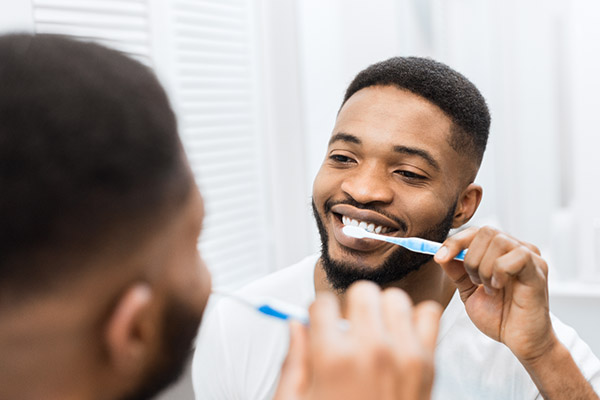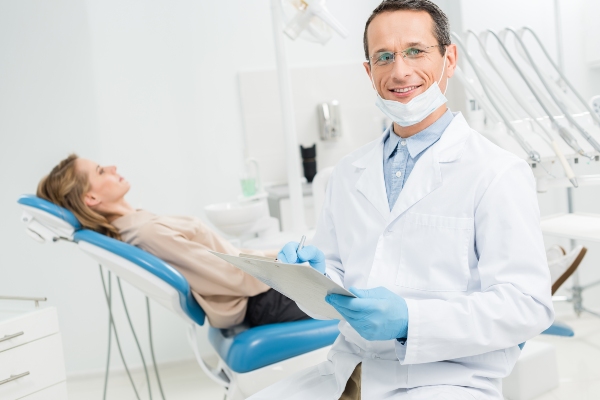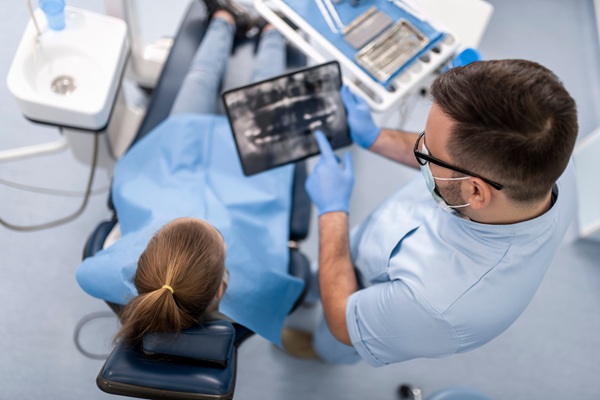 Practicing good oral hygiene basics is essential for keeping beautiful, strong teeth and gums as well as staying healthy throughout the entire body. Here are four of the most common ways to ensure excellent oral health and hygiene.
Practicing good oral hygiene basics is essential for keeping beautiful, strong teeth and gums as well as staying healthy throughout the entire body. Here are four of the most common ways to ensure excellent oral health and hygiene.
Standard oral hygiene practices
1. Brushing and flossing regularly
Dentists recommend that everyone brush their teeth at least two times per day for two minutes each session. Brushing removes food particles left behind after eating and removes plaque, a sticky substance that can accumulate, harden, and lead to gum disease if not taken care of promptly. Manual or electric toothbrushes with soft bristles are the ideal tools for brushing, along with toothpaste containing fluoride. Proper brushing techniques include:
- Holding the toothbrush at a 45-degree angle to your gums
- Moving the brush back and forth in gentle, fluid strokes
- Brushing the outer surface of the teeth while applying mild pressure and then going back to do the same for the backsides of the teeth
People should floss once per day, slowly and carefully as not to agitate the gums. Flossing gets rid of food and plaque between the teeth in places people cannot reach by brushing. Floss comes in varying textures and thicknesses, so find the one that works well for you.
2. Hydrating
Practicing good oral hygiene can be as simple as drinking enough water throughout the day. Water not only washes away food particles left behind from snacks and meals but promotes the production of saliva. The presence of saliva in the mouth helps protect the teeth from issues such as cavities and infections. People should try to drink eight, 8-ounce glasses of water each day for good oral and overall health. While generally not as beneficial as water, drinking hot or iced herbal teas can be similarly helpful for oral health.
3. Visiting the dentist regularly
The excellent preventative practice of oral hygiene is to visit the dentist every six months for a checkup and cleaning. A dental exam includes checking for cavities, gum disease, and other oral problems before they turn into something more serious. Everyone should also get x-rays of their teeth every two to three years, even if their teeth are otherwise healthy, to identify any possible issues that cannot be seen on the surface of the teeth. If desired, someone can choose to have their teeth whitened at the dentist for purely cosmetic reasons.
4. Reducing intake of acidic and sugary foods
Sugar helps feed the bacteria that live in your mouth and contributes to plaque forming on the surfaces of the teeth. Reducing sugar intake helps maintain a healthy oral environment. Acidic foods and drinks can eventually lead to erosion of the enamel of the teeth when consumed in large amounts over time. Drinking water and brushing can reduce some of the adverse effects of sugar and acid, but it is advisable to avoid these substances in the first place.
Conclusion
Practicing these simple oral hygiene basics can prevent serious issues with oral health.
Request an appointment or call Gledhill Dental at 509-800-8410 for an appointment in our Kennewick office.
Related Posts
Implant supported dentures combine traditional dentures with permanent dental implants to provide a stable and secure tooth restoration option. Unlike traditional removable dentures, this option is supported by two or more dental implants rather than your gum tissues. The additional stability of dental implants may make it simpler to bite and chew meals, particularly with…
Having a solid handle on good oral hygiene basics will help preserve the integrity of your teeth and mouth health for a long time to come. Steering clear of cavities, receding gums, or decay ensures that your smile is bright and beautiful for as long as possible. If you think you already have an excellent…
Having a firm understanding of oral hygiene basics can prevent tooth decay, gum disease, and general oral discomfort. Human beings go through life developing a range of habits that impact oral health, some of which are good and some of which are bad. Avoiding these damaging behaviors promotes strong teeth and gums that can last…


